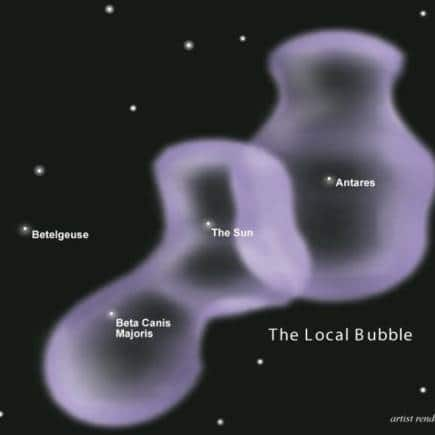



A supernova explosion is a spectacular event. It unleashes vast energy and creates heavy elements essential for life. Scientists are exploring how these cosmic occurrences impacted life on Earth millions of years ago.
Research published in the Astrophysical Journal Letters reveals that supernovae release iron isotopes into space. Two notable accumulations of the iron isotope Fe60 have been found in sea-floor sediments. These deposits date back two to three million years and five to six million years.
The radiation from these explosions bombards our planet. The study, led by Caitlyn Nojiri from UC Santa Cruz, discusses the implications. The authors note that cosmic radiation fluctuates as our Solar System travels through the galaxy.
Read Also: Rare comet visiting Earth for the first time in 80,000 years to illuminate skies this week: How to watch itThe Local Bubble, a vast region of hot gas, is a key element in this research. It was formed by massive OB stars emitting powerful winds. Our Solar System has been within this bubble for several million years.
The younger Fe60 accumulation originates directly from a nearby supernova. The authors suggest it likely came from the Upper Centaurus Lupus association or the Tucana Horologium association. They estimate at least nine supernovae occurred within the last six million years.
 An artist’s conception of the hot local bubble. (Image: NASA)Read Also: Second Moon for Earth: What you should know about 2024 PT5
An artist’s conception of the hot local bubble. (Image: NASA)Read Also: Second Moon for Earth: What you should know about 2024 PT5The radiation from these explosions may have significant effects on life. The study proposes that it could cause DNA damage, leading to mutations. These mutations might drive species diversification.
Interestingly, a 2024 paper found accelerated virus diversification in Lake Tanganyika coinciding with increased cosmic radiation. The researchers hope to connect these findings to supernova activity.
Read Also: Asteroid alert: NASA warns of three massive space rocks on a collision course with Earth todayWhile the radiation from supernovae wasn’t strong enough to cause mass extinction, it could have influenced evolutionary processes. Understanding cosmic radiation is crucial for assessing its effects on life.
The study indicates that cosmic radiation plays a vital role in Earth’s biodiversity. Researchers stress the need to explore the biological effects of radiation further. Without supernovae, life on Earth may have taken a different path altogether.
Discover the latest Business News, Sensex, and Nifty updates. Obtain Personal Finance insights, tax queries, and expert opinions on Moneycontrol or download the Moneycontrol App to stay updated!
Find the best of Al News in one place, specially curated for you every weekend.
Stay on top of the latest tech trends and biggest startup news.